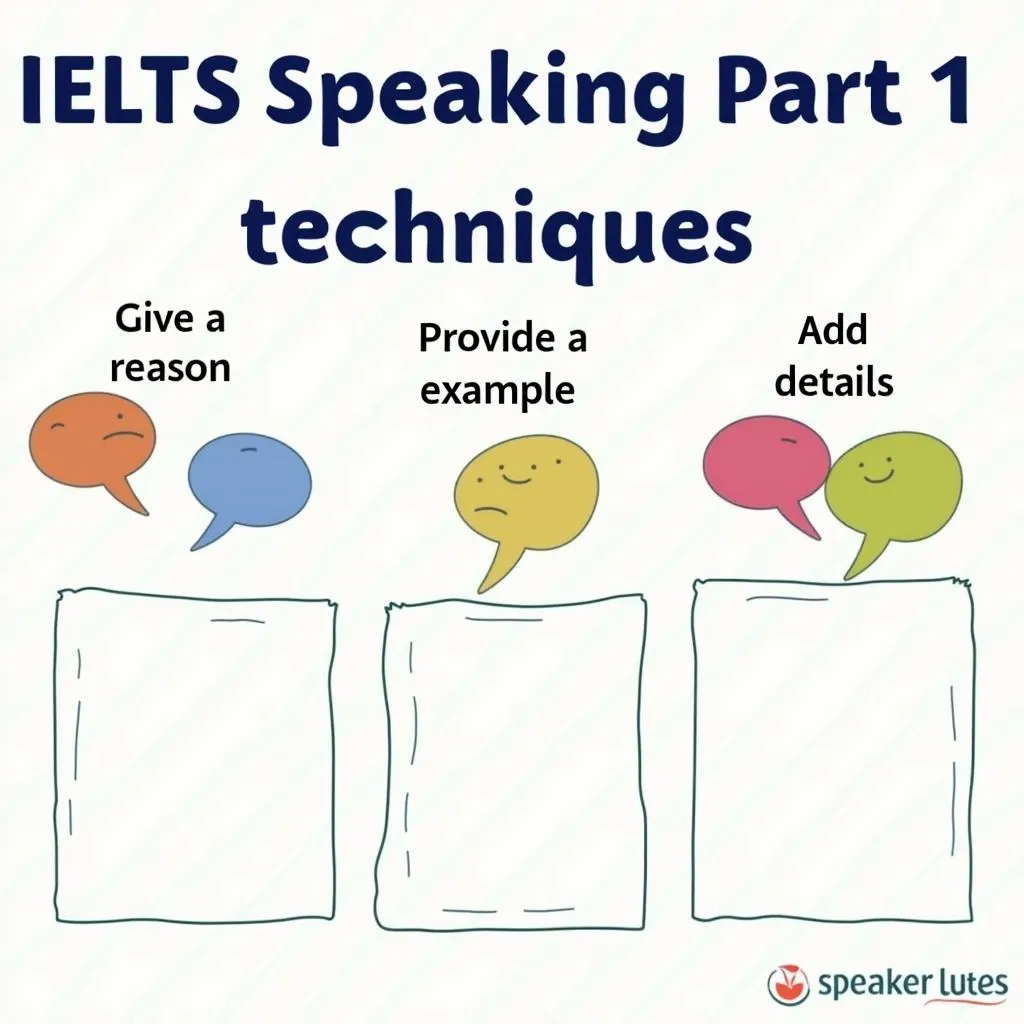Understanding IELTS Speaking Part 1
IELTS Speaking Part 1 is the introductory segment of the speaking test, lasting 4-5 minutes. It consists of general questions about familiar topics such as your hometown, family, work, or studies. This part aims to assess your ability to communicate opinions and information on everyday subjects and common experiences or situations.
Key Features of IELTS Speaking Part 1
- Short questions and answers
- Topics related to personal experiences
- Examiner-led conversation
- Informal, conversational tone
Understanding these features is crucial for effective preparation. Candidates should focus on developing concise yet informative responses to a range of common topics.
Essential Preparation Strategies
1. Familiarize Yourself with Common Topics
To excel in IELTS Speaking Part 1, it’s crucial to be well-versed in frequently asked topics. These typically include:
- Home and family
- Work or studies
- Hobbies and interests
- Daily routines
- Hometown and accommodation
- Weather and seasons
- Travel and transportation
Prepare by brainstorming ideas and vocabulary related to these topics. This will help you respond more confidently and fluently during the test.
2. Practice Answering Sample Questions
Regular practice with sample questions is key to improving your performance. Here’s an effective method:
- Find sample IELTS Speaking Part 1 questions online or in preparation books.
- Set a timer for 4-5 minutes to simulate the actual test conditions.
- Record yourself answering the questions.
- Listen to your responses and evaluate your performance.
- Identify areas for improvement, such as pronunciation, fluency, or vocabulary use.
This practice routine will help you become more comfortable with the format and timing of Part 1.
3. Develop Strategies for Extending Answers
While Part 1 questions typically require brief responses, it’s beneficial to provide slightly extended answers to showcase your language skills. Use these techniques to elaborate on your responses:
- Give a reason: “I enjoy reading because it broadens my knowledge.”
- Provide an example: “For instance, last week I read a fascinating book about marine biology.”
- Add details: “It was a 300-page book with stunning underwater photographs.”
Remember to keep your extensions relevant and concise, as over-lengthy responses are not expected in this part of the test.

4. Improve Your Vocabulary
A rich vocabulary is essential for articulating your thoughts clearly and precisely. To enhance your lexical resource:
- Create topic-specific word lists
- Learn synonyms for common words
- Practice using idiomatic expressions appropriately
- Study collocations relevant to frequent topics
For example, instead of saying “I like my job,” you could say “I find my work deeply fulfilling.” This demonstrates a more advanced command of English.
5. Work on Your Pronunciation and Fluency
Clear pronunciation and natural fluency are crucial for effective communication. Here are some strategies to improve:
- Listen to native English speakers and imitate their intonation and stress patterns
- Practice tongue twisters to improve specific sounds
- Use connected speech in your responses (e.g., linking words, contractions)
- Speak at a steady pace, neither too fast nor too slow
Regular practice will help you sound more natural and confident during the test.
Important Tips for Test Day
Stay Calm and Confident
Nervousness can affect your performance. Remember these points to stay calm:
- Take deep breaths before entering the test room
- Remind yourself that this is a conversation, not an interrogation
- Smile and maintain a positive attitude
Listen Carefully to the Questions
Ensure you understand each question before responding. If you’re unsure:
- Politely ask the examiner to repeat the question
- Rephrase the question to confirm your understanding
Be Honest and Authentic
While it’s important to showcase your language skills, your responses should be genuine. The examiner is interested in your ability to communicate, not the content of your answers.
Maintain Eye Contact
Engage with the examiner by maintaining natural eye contact. This demonstrates confidence and helps establish a rapport.
Next Steps
After mastering these strategies for IELTS Speaking Part 1, focus on:
- Practicing regularly with a study partner or language exchange app
- Recording yourself and analyzing your performances
- Expanding your preparation to include Parts 2 and 3 of the Speaking test
- Taking full-length practice tests to build stamina and confidence
Remember, consistent practice and a positive attitude are key to success in the IELTS Speaking test. Good luck with your preparation!